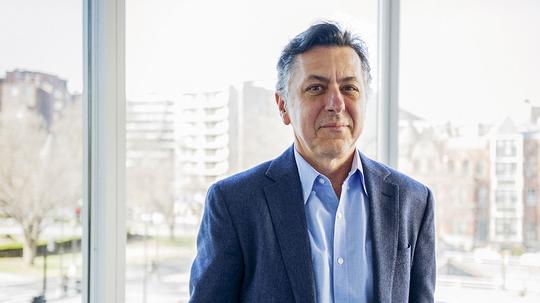
Vanda Pharmaceuticals Inc. is heading into 2021 with confidence after reporting a 9% increase in net product sales for the first nine months of 2020 in an industry the Covid-19 pandemic has generally challenged.
Vanda reported $180.5 million for the first three quarters of 2020, with revenue coming from two products: non-24-hour sleep-wake disorder drug Hetlioz, responsible for $116.5 million, a 12% increase from the first three quarters of 2019; and schizophrenia drug Fanapt, which brought in $64 million, 3% more than in 2019.
Vanda (NASDAQ: VNDA) ended September with $348.5 million in cash, cash equivalents and marketable securities — up from $48.9 million at the same time last year.
“We’re optimistic about the growth prospects of our commercial products Hetlioz and Fanapt as we enter the fourth quarter and look for a positive momentum into the next year,” Vanda President and CEO Dr. Mihael Polymeropoulos said Wednesday on the company’s third-quarter earnings call.
The revenue increase came after the pandemic’s disruption, “which peaked in late spring” and “did affect demand for both Hetlioz and Fanapt, as measured by new scripts for each of the products,” Polymeropoulos said. But that several-week delay “translated to fierce starts in the third quarter,” he said, adding that Hetlioz revenue was “minimally impacted.” It has also seen a “significant increase” in new Hetlioz prescriptions since August, a trend he said he expects to continue.
Vanda’s stock opened Thursday at $11.17 per share and closed at $10.99 per share, up nearly 9% from before the earnings release.
New drug news
Positive earnings weren’t Vanda’s only good news this week, as the Food and Drug Administration approved its investigational new drug application for a candidate for allergic conjunctivitis, or allergy-related inflammation in the eye, which allows the company to initiate a phase 2 study. That’s on track to start enrollment by the end of this year and produce results in 2021. The collaboration with the University of California, San Francisco, is the company’s first program in ophthalmology.
It comes after the FDA accepted for priority review its application for Hetlioz as a treatment for a developmental disorder called Smith-Magenis Syndrome. The company expects a decision Dec. 1.
It also comes after Vanda launched a direct-to-consumer TV ad campaign for Fanapt, as “awareness for our Fanapt brand is entering the national stage and is being inserted into the vocabulary of the U.S population,” Polymeropoulos said.
“We remain optimistic that awareness will lead to new starts that will hopefully translate to an increase in the number of patients on treatment,” he said on the call.
The company is also testing drug candidate tradipitant as a potential Covid-19 treatment, based on preliminary results that show the candidate may speed up improvement in patients with pneumonia relating to the coronavirus. “If confirmed, this effect may be of significant clinical benefit for patients as well as for public health by decreasing the amount of resources employed in the treatment of patients with Covid-19 pneumonia,” Polymeropoulos said.
The next step would be to study a larger sample size to assess the therapeutic benefit to hospitalized patients. Vanda is continuing to recruit patients for this study, it said in its latest filings with the Securities and Exchange Commission.
Moving forward
Vanda has also resumed patient enrollment in it study of a tradipitant as a treatment for gastroparesis after a pandemic-related pause. That late-stage clinical trial is now 50% enrolled toward a 200-patient target, expected to complete in the first half of 2021. That would set the stage for the company to file a new drug application later next year, it said.
That study was the subject of a lawsuit between the biotech and regulators, in which Vanda sued the FDA for imposing a partial clinical hold on the study and requiring that it perform further chronic toxicity studies in dogs before being able to conduct human studies longer than 90 days. The company lost that lawsuit, but maintains that the additional study “does not have the scientific justification, but it will claim the lives of dozens of beagle dogs,” Polymeropoulos said on Wednesday’s call. “This discussion is continuing on with the FDA through the formal appeal process with the agency, and it is progressing.”
“But I need to emphasize that while this is going on, the pivotal gastroparesis study is ongoing, and it is our expectation that if we do have positive results in this study by mid-2021, that will be sufficient to file for gastroparesis indication, although we can anticipate that there may be restrictions to the length of treatment to 3 months,” Polymeropoulos said.
While that study continues, a handful of other trials are now on hold, including studies for Fanapt in bipolar disorder, and tradipitant in motion sickness and atopic dermatitis — the latter after a failed trial earlier this year.

